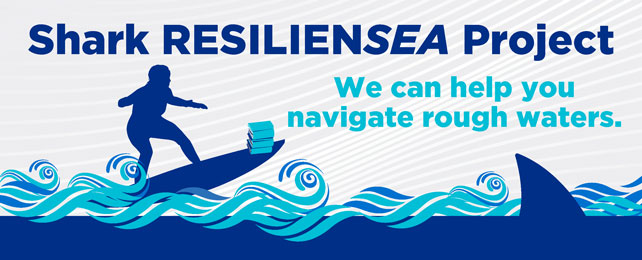
5 Steps
5 Steps to Build ResilienSEA
Coping skill or strategies are tools and techniques you can use to help deal with difficult emotions, decrease stress, and establish or maintain a sense of internal order. Play to your strong points; recognize, utilize and grow your signature strengths.
- Expressive Writing Labs
Learn more and sign up here (Coming Soon)
- Mindfulness
Mindfulness is the ability to know what is happening in your head at any given moment without letting yourself get carried away by those thoughts. It is acknowledging our thoughts and placing no judgment on them. It is the basic human ability to be fully present, aware of where we are, what we’re doing, and not overly reactive or overwhelmed by what’s going on around us.
Cognitive restructuring is a therapeutic process used to identify and confront negative thoughts and help us understand that some thoughts are ineffective or disruptive. The goal is to ultimately change negative behaviors by
1) identifying irrational thoughts
2) challenging / disputing them, and
3) replacing them with more realistic, rational, and positive thoughts
Here are some ways how:
- Change the narrative, your perspective or reframe.
Example: I am a survivor vs. I am a victim
- Focus on the things you CAN control
Example: Create your own circle of control
- Emotional Intelligence
People often say, “I can’t stand this”, “This isn't fair”, “This can’t be true”, and “It shouldn't be this way.” It’s almost as if we think refusing to accept the truth will keep it from being true, or that accepting means agreeing. Accepting doesn't mean agreeing.
Practice it over and over again. Acceptance often requires many repetitions.
- Are you making choices that help or hinder your resilience?
The Eisenhower Matrix helps us prioritize tasks by urgency and importance, sorting out less urgent and important tasks which you should either delegate or not do at all.
Try it yourself HERE
Take control of your own life! Play to your strong points; recognize, utilize and grow your signature strengths. Understand your strengths and weaknesses, and do not allow others to control it for you.
- Focus on things that are not dependent on other people or outside circumstances.
Example: Qualities like adaptability, intelligence, a sense of humor, courage, perseverance, resourceful, assertiveness, gratitude
- Practice positive affirmations
- Self-empowerment
Physical wellness is the ability to maintain a healthy quality of life that allows us to get the most out of our daily activities without undue fatigue or physical stress. Physical wellness means living responsibly and taking care of your body and recognizing that our daily habits and behaviors have significant impact on our overall health, wellness, and quality of life.
Here' some ways how:
- Regular physical activity has been linked to improve mood, cognition, regulation of emotion, immunity, and overall self-esteem.
NSU RecWell Group Exercise Schedule
- Prioritize sleep
A critical piece of resilience lies in connecting with others, through neighborhoods, organizations, and the community. We need authentic social connections! Humans are social creatures. Positive social connections improve quality of life, boost mental health, and help us live longer. Social connectedness generates a positive feedback loop of social, emotional and physical well-being.
1.Establish a nurturing and supportive social network
Cultivate a circle
2. Find a resilient role model
Resiliency characteristics:
- Calm in stressful situations
- Proactive mental attitude
- Committed to self-care
- Adapt to change
- Uses humor patience and optimism